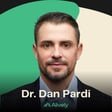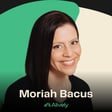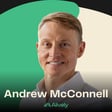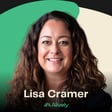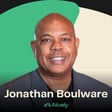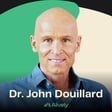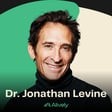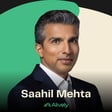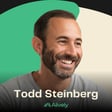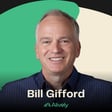
Biohacking Supplements for a Longer Healthspan with Melanie Avalon - E50
Ever wondered what the daily routine of a serious biohacker actually looks like? What are their strict do's and don'ts? What do they recommend for people seeking to live longer, healthier lives?
In this episode, we talk to someone who's turned self-optimization into both a science and art. If you've felt overwhelmed by conflicting advice, or wasted money on trendy products that don't deliver, we'll offer a transparent look at what actually works.
Melanie Avalon is a biohacker, podcaster, author, influencer, and entrepreneur known for her deep research into health optimization. As the host of The Melanie Avalon Biohacking Podcast, she has interviewed a diverse range of experts across the nutrition and longevity spectrum. Her AvalonX supplement line was created out of frustration with the lack of transparency and purity in the supplement market, marking her shift from researcher and communicator to product innovator. Melanie’s work has been featured across mainstream media, and she is recognized for bringing scientific rigor and nuance to everyday wellness practices, making her a trusted guide for those looking to improve their healthspan.
“I'm not about all the supplements all the time and I'm not about supplements replacing food. I'm about them filling in the gap and then optimizing.” - Melanie Avalon
In this episode you will learn:
- Why Melanie started her own supplement line, AvalonX, and the challenges she sees in the supplement industry regarding purity, fillers, and transparency.
- How Melanie approaches nutrition as a biohacker, including her protein-forward diet, thoughts on supplementation, and lessons learned from interviewing the full spectrum of dietary experts.
- The daily routines and exercise habits Melanie uses for improved healthspan, including her experience with fasting, movement, and optimizing muscle mass.
- The role of sleep in her wellness protocol, and how she supports rest and recovery using tools like blue light blocking, sauna, mouth taping, and wearables.
- Insights on managing stress and optimizing mindset, from practical breathwork and tracking devices to the importance of reframing and individual experimentation.
- Why social connection, self-knowledge, and individualized approaches are essential for sustaining changes, along with Melanie’s advice for anyone starting their own health journey.
Resources
- Connect with Melanie on Instagram: https://www.instagram.com/melanieavalon/
- Find out more about Melanie’s work and offerings: https://melanieavalon.com/
- Listen to Melanie podcast, ‘The Melanie Avalon Biohacking Podcast’: https://podcasts.apple.com/us/podcast/the-melanie-avalon-biohacking-podcast/id1474706111
- Listen to the podcast Melanie co-hosts, ‘The Intermittent Fasting Podcast’: https://podcasts.apple.com/us/podcast/the-intermittent-fasting-podcast/id1228755008
- Shop all the products Melanie mentions in this episode: https://alively.com/products/melanie-avalon
This podcast was produced by the team at Zapods Podcast Agency:
https://www.zapods.com
Find the products, practices, and routines discussed on the Alively website:
https://alively.com/

